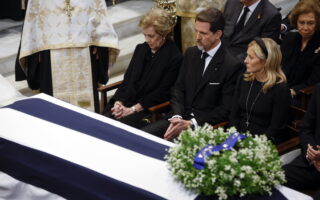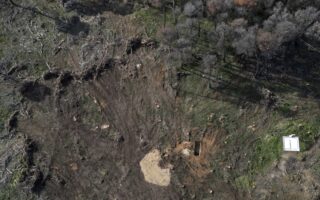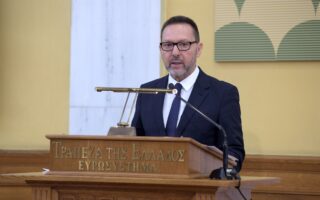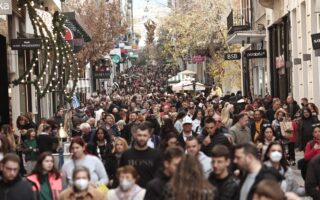The hushed conspiracy
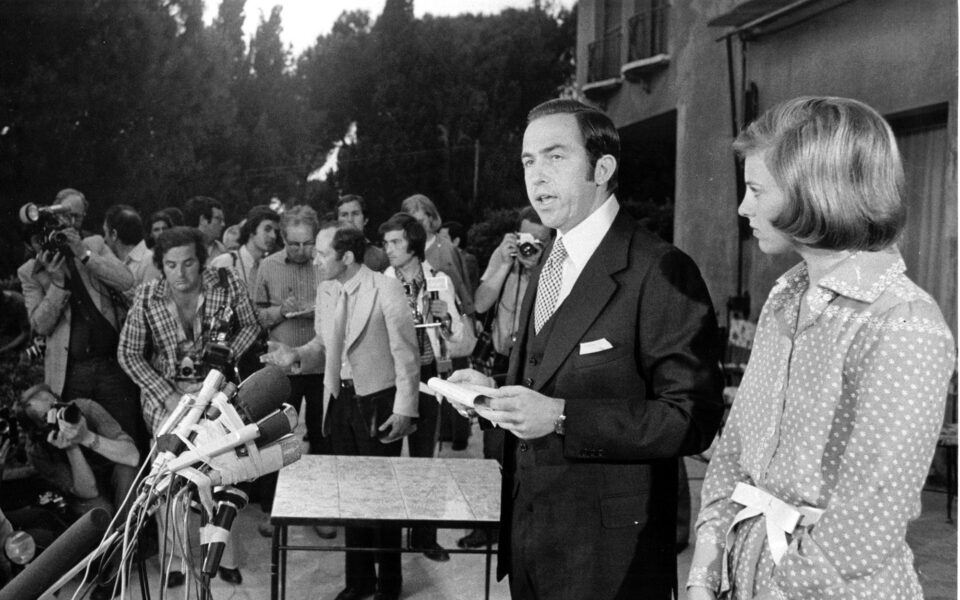
One of the myths recently circulating on the internet, a fake story, is that Greece’s deposed monarch, Constantine II, who was buried on Monday at Tatoi, “never opposed democracy.” This is false. The late monarch opposed it by his activities and constantly opposed it by his omissions.
The archives of late conservative premier Konstantinos Karamanlis show that the ousted king discussed a plot “to assassinate Karamanlis and to overthrow the democratic regime through a military coup” in the period 1975-1979. This is confirmed by many sources as well as wiretaps of conversations. And if, for some people, his youth (24 at the time) justifies the events that led to the political turmoil that is known in Greek history as the “Apostasia of 1965,” in 1978, when the plot was still active, he was 38 years old.
“I avoided bringing this conspiratorial activity of the former king to the public, although I had an interest in doing so, both out of respect for the memory of his father Pavlos, and in order not to give the impression internationally that democracy in Greece is still precarious,” Karamanlis wrote in a personal note that he filed in his archives.
As we have written many times, informal education is also suffering in Greece – the one that was once provided by the media, political parties, and even friends
Karamanlis’ silence is justified. But not the silence of Greek media when this terrifying revelation was made. All the evidence presented in Kathimerini made for a sensational report.
The story involved the British secret service monitoring the deposed king and informing the Greek government; there were plans for troop movements that could have been made into colorful graphics, like those shown in recent days with the procession of the casket; notes from his associates were found that “Constantine was distressed because he had traveled to Iran and Saudi Arabia to secure a 2-billion-dollar loan which he would use if he succeeded in being reinstated to the throne”; there was a verbatim conversation between the former king and a retired general, which was recorded by a man from the Greek secret services. There were many revelations, which could have been expanded through a journalistic investigation.
This silence was not the result of some kind of conspiracy. Unfortunately, that is all we are capable of. The TV channels are, of course, justified. Their main issue in July 2021 was (once again) whether there would be elections in the fall and which Sunday was more convenient. Greek television is only capable of creating easy-viewing programs, not hard-hitting investigations. On the other hand, we should not be surprised that some young people rushed to the Metropolitan Cathedral at dawn, where Constantine’s body lay ahead of the burial, to say their respects. As we have written many times, informal education is also suffering in Greece – the one that was once provided by the media, political parties, and even friends.
